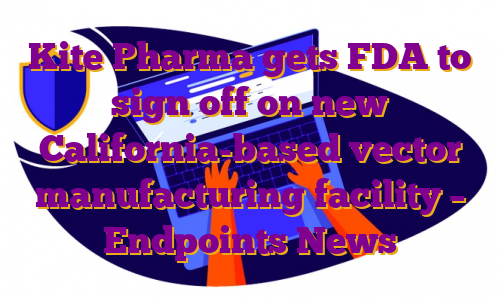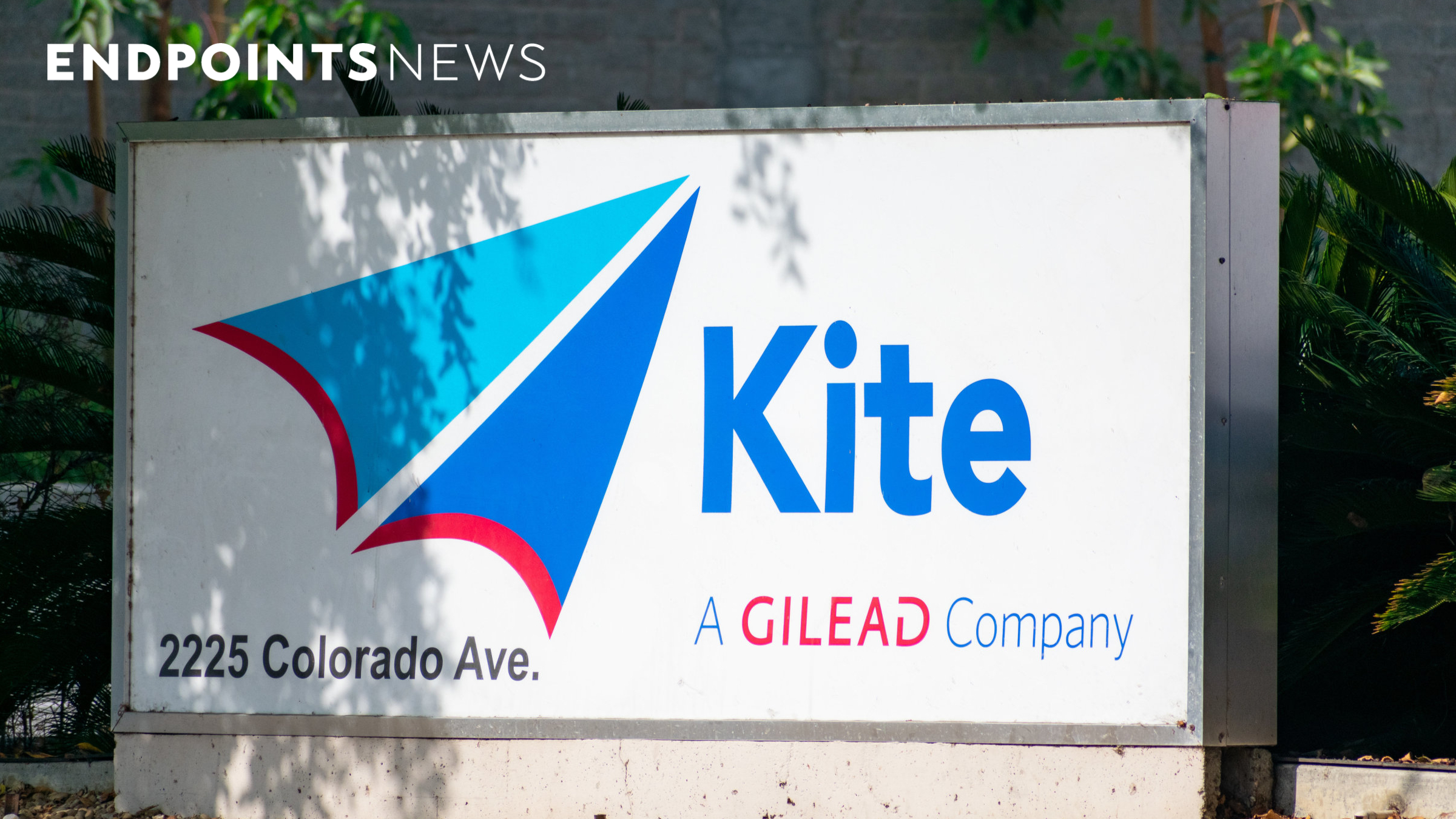Kite Pharma just got FDA approval to kick off operations at a new manufacturing campus.
The cancer-focused, CAR-T cell therapy player made the announcement Monday, saying that the federal regulatory agency gave the green light to Kite’s 100,000 square-foot, retroviral vector manufacturing facility in Oceanside, CA.
Kite’s global head of technical operations Chris McDonald tells Endpoints News that the facility has been in the works for about four years, after Kite teamed up with its parent company Gilead. Gilead acquired Kite Pharma for just shy of $12 billion in 2017.
 Chris McDonald
Chris McDonald
Kite has employed 100 workers focused on viral vectors in the facility, and since the building is located on Gilead’s campus, the parent pharma will be providing logistical support, such as cafeteria staff and building security. The building also touts two manufacturing suites: One is fully dedicated on retroviral vectors in current commercial products, and the other is set aside for future expansion for pipeline products and potentially different types of vectors.
Viral vectors, according to McDonald, are a key ingredient needed for Kite to make the CAR-T cell therapies that the biotech has gotten approved to make for patients, such as Yescarta and Tecartus. The vectors are the ingredient that encode the chimeric antigen receptor into a patient’s T cells.
McDonald added that the Gilead subsidiary is looking at automating part of the manufacturing process so that Kite can become more efficient. Per McDonald:
I think right now, if you went into any lab in any university, you’re gonna see staff working under a biosafety cabinet, you know, making products, etc. And it’s a very manual process and staff are bound quite a bit in aseptic gowning. What we’re working on is really developing an automation platform that will take a lot of the manual steps away and automate them and also close the manufacturing process, so that we don’t have to operate aseptically, which is a huge benefit for our staff — drives a lot of efficiency.
The operations chief noted that this was just on the manufacturing side. On top of that, the pharma is investigating potential options to automate quality control testing, as every batch Kite makes is for only one patient.
The Oceanside site is just the newest addition to Kite’s group of manufacturing facilities — including others in California, the Netherlands, and in Maryland.


